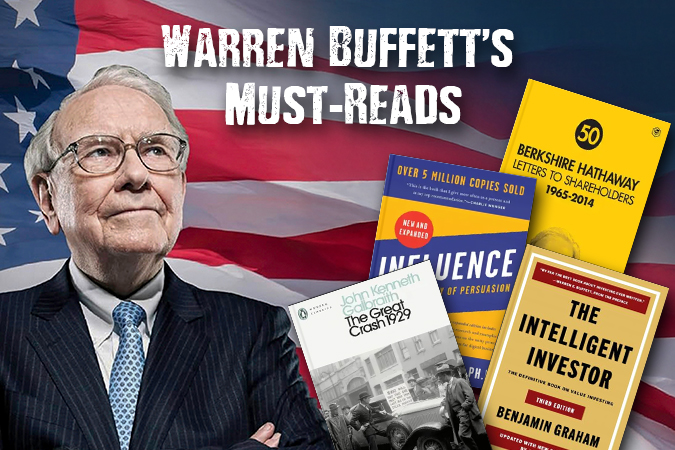
Mahatma Gandhi remains one of the most influential figures in history. His philosophy of non-violence and truth inspired movements across the world, shaping political landscapes and moral ideologies. If you’re looking for books about Mahatma Gandhi, whether to understand his ideas, his role in India’s independence, or his influence on world leaders, this list is for you.
From biographies and autobiographies to philosophical works, these books on Mahatma Gandhi provide deep insights into his life and beliefs. Whether you’re a student, a history enthusiast, or someone seeking inspiration, dive straight into this essential reading guide.
Who Was Mahatma Gandhi?
Mohandas Karamchand Gandhi, popularly known as Mahatma Gandhi, was the leader of India’s independence movement against British rule. He advocated for ahimsa (non-violence) and Satyagraha (truth and resistance) to achieve freedom. Born in 1869 in Porbandar, Gujarat, Gandhi was raised in a deeply religious environment that shaped his views on morality and self-discipline. After studying law in England, he moved to South Africa, where he experienced racial discrimination firsthand and began his first major political campaigns. His methods of civil disobedience and non-violent resistance became the foundation of his leadership.
Gandhi’s Influence and Legacy
Gandhi’s core belief was ahimsa, or non-violence, which he saw as a powerful tool for social and political change. He believed that truth, love, and self-discipline could achieve what violence never could. From the Non-Cooperation Movement to the Dandi March, his peaceful protests forced the British to take notice. He united millions under the vision of a free and self-sufficient India, proving that strength lay in unity and perseverance. His influence extended beyond India, shaping global civil rights movements. Martin Luther King Jr., Nelson Mandela, and Barack Obama have all credited Gandhi’s philosophy as instrumental to their activism. Today, his legacy lives on, with streets, statues, and institutions named after him worldwide.
Gandhi’s life ended tragically on January 30, 1948, when he was assassinated by Nathuram Godse. His last words, reportedly “Hey Ram”, symbolised his unwavering faith and commitment to truth and divinity.
(Also read: 5 Must-Read Biographies Of Indian Leaders)
10 Must-Read Books About Mahatma Gandhi
This book covers Gandhi’s life from his return to India in 1915 to his assassination in 1948. It delves into his fights against caste discrimination, gender inequality, and communal violence. Through rare sources, it paints an unparalleled portrait of Gandhi’s struggles and triumphs. The book also highlights his relationships with key figures like Jawaharlal Nehru, Sardar Patel, and Jinnah. It provides an intricate look at how Gandhi balanced political leadership with his deeply personal spiritual journey.
Gandhi’s autobiography, this book is a deeply personal account of his life, from childhood to his early political activism. It reveals his moral dilemmas, experiments with simplicity, and evolving philosophy. Through vivid anecdotes, it gives insight into his personal failures, doubts, and relentless pursuit of truth. The book also chronicles his inner battles with materialism, self-discipline, and family responsibilities, making it a deeply introspective read.
This biography uncovers Gandhi’s formative years in South Africa, where he developed his ideas on Satyagraha and non-violent resistance. It explores his challenges, friendships, and failures before he became the Mahatma. The book provides a nuanced look at how Gandhi’s legal battles shaped his philosophy. It also delves into the struggles he faced as a young lawyer trying to establish himself in a foreign land, grappling with racial discrimination and personal identity.
Written by Rajmohan Gandhi, this biography takes a fresh perspective on Gandhi, examining his personal struggles, contradictions, and ideological battles. It presents him not as an infallible saint but as a man who constantly questioned his beliefs. The book also explores his deeply philosophical approach to politics and social reform. It provides an unfiltered look at how Gandhi’s failures often became the foundation of his greatest successes.
By Ved Mehta
A fascinating book by Ved Mehta, this work blends biography with firsthand accounts from Gandhi’s disciples. It presents a humanized portrait of the Mahatma, showing his strengths and vulnerabilities. The book offers a behind-the-scenes look at how his closest followers perceived him. It also examines the challenges they faced in embodying his ideals and principles in everyday life.
A compact yet powerful biography that outlines Gandhi’s life, philosophy, and struggles. This book provides a clear and concise introduction to the man who changed history. It serves as an excellent starting point for those new to Gandhi’s teachings. The book also emphasizes his message of non-violence in a world that continues to struggle with conflict.
This biography presents a nuanced take on Gandhi’s impact on India’s independence. It highlights both his visionary leadership and his later struggles to implement his ideals in a newly independent India. The book critically examines how Gandhi’s spiritual beliefs often clashed with the practicalities of governance. It also sheds light on his final years, where he found himself increasingly isolated from mainstream politics.
Written by Gandhi himself in 1909, this book critiques modern civilization and advocates for self-reliance. It remains one of the most radical political texts in Indian history. The book lays out Gandhi’s vision for a self-sufficient India and warns against blind imitation of Western industrialization. It also serves as a philosophical guide for non-violent resistance movements across the world.
A collection of Gandhi’s essays, this book sheds light on his views on economic self-sufficiency, swadeshi, and the struggles of common people. His firsthand experiences make for a compelling read. Gandhi’s vivid descriptions of poverty and class disparities in colonial India provide a poignant critique of economic injustice. The book also includes his reflections on the dignity of labor and the need for an inclusive society.
Gandhi’s interpretation of the Bhagavad Gita, this book reflects his belief in selfless action. He used the Gita as a moral compass, influencing his commitment to truth and non-violence. The book captures how Gandhi internalized the teachings of the Gita into his daily life and activism. It also presents his view that true service to humanity can only come through self-purification and unwavering faith.
Mahatma Gandhi’s life and philosophy continue to shape the world. If you’re interested in reading these books, explore our curated collection HERE and bring home a piece of history today.













